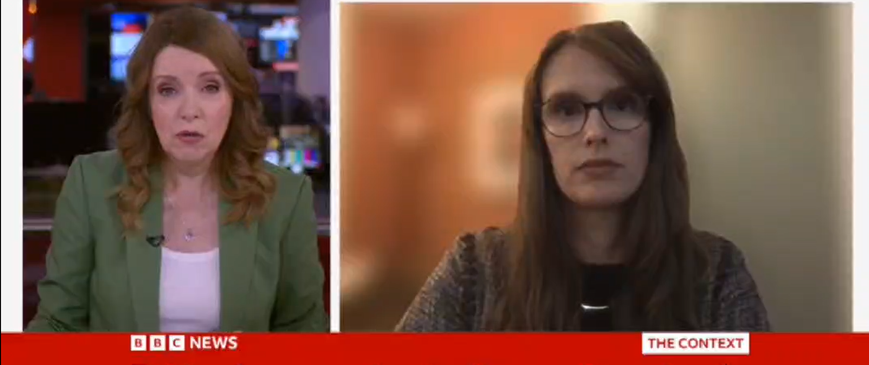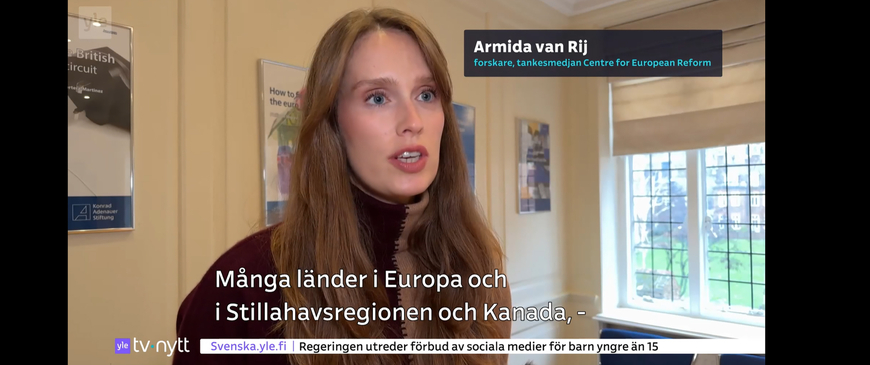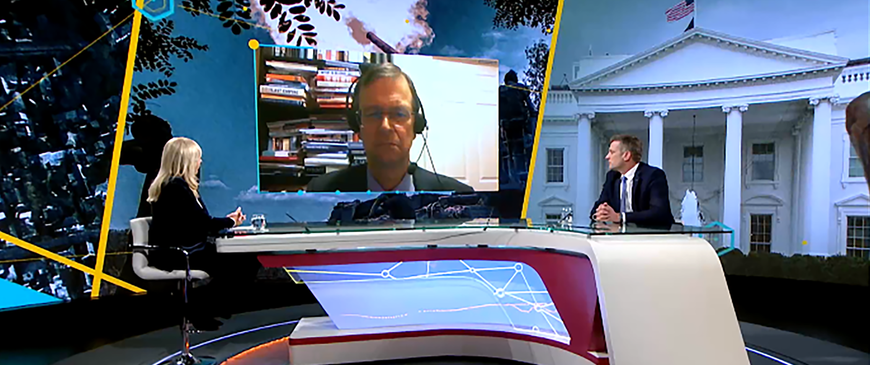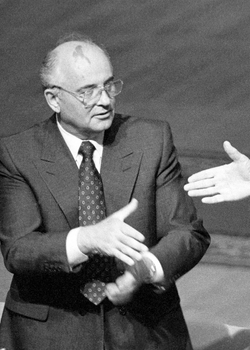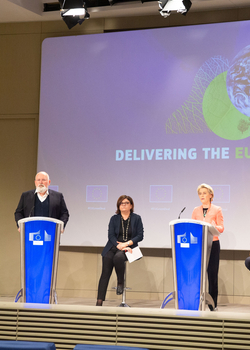Press
The Afghanistan debacle has weakened ties between Britain and America
27 August 2021
The Economist
Ian Bond of the Centre for European Reform, a think-tank, notes that support for the peace process is unusually bipartisan in America. If Mr Johnson is seen as threatening it, the reaction in Washington will be fierce.
‘Bonkers’ fight over product standards shows old Brexit battles persist
25 August 2021
Financial Times
Instead of pursuing what Sam Lowe from the Centre for European Reform calls “performative divergence”, the government accepts that this is a change that comes at significant cost and with little real benefit.
UK manufacturers win big concession on post-Brexit quality mark
24 August 2021
Financial Times
Sam Lowe, trade expert at the Centre for European Reform, a think-tank, said that since the UK was unlikely to diverge from EU goods rules in practice in most areas, it made sense to continue to allow CE-marked goods to be sold in the UK, both now and far into the future.
UK manufacturers to get big concession on post-Brexit quality mark
24 August 2021
The Irish Times
Sam Lowe, trade expert at the Centre for European Reform, a think-tank, said that since the UK was unlikely to diverge from EU goods rules in practice in most areas, it made sense to continue to allow CE-marked goods to be sold in the UK, both now and far into the future.
US and UK could strike 'mini deals' before FTA: 'There is still appetite!'
23 August 2021
The Daily Express
Referring to the agreement Brussels reached with the Trump administration at the time, Sam Lowe, a senior research fellow at the Centre for European Reform, wrote on Twitter: "When I’ve been saying the UK and US could do a mini trade deal this year, this is the sort of thing I was talking about."
Bruselas sopesa activar una vía de emergencia para ofrecer protección a refugiados afganos
19 August 2021
El Pais
El gabinete de estudios Centre for European Reform (CER) considera muy improbable que Afganistán se convierta en una fuente importante de migración, como ya ocurrió tras la invasión del país por la Unión Soviética (1979) o tras la primera llegada al poder de los talibanes (1996).
CER podcast: Why the 1991 Moscow coup still resonates
18 August 2021
Ian Bond speaks to Angela Stent and Igor Yurgens about the lessons the West should draw from the 1991 Moscow coup.
European Commission recommends ‘No’ for Lugano as Brexit fallout intensifies
05 August 2021
The Parliament Magazine
Some observers believe that the Single Market aspect, while genuine, is not the main reason for the Commission’s stance. In a recent blog, Zach Meyers and Camino Mortera-Martinez of the Centre for European Reform (CER) think tank argue that, “A more likely explanation for the Commission’s reticence to allow the UK to re-join the convention is that Britain remains a difficult partner for the EU on a range of issues, not least in honouring its own word.”
CER/OSEPI podcast: How should the EU tackle corruption?
05 August 2021
Camino Mortera-Martinez and Carl Dolan discuss European corruption and consider Katalin Cseh and Michiel van Hulten's remarks from a recent CER event.
House of Commons Welsh Affairs Committee: Implications of the UK-Australia FTA for Wales
04 August 2021
House of Commons Welsh Affairs Committee
Sam Lowe, senior research fellow at the Centre for European Reform (CER), told us that “there is very little substantive threat to Welsh farmers as of now. Of course, circumstances in the future could change and we could see a big uptick in Australian exports of agri-food products to the UK.”
An entente cordiale with France beckons – once Macron has gone
04 August 2021
The Telegraph
“It was not the Americans who ended the siege of Sarajevo: it was the British and the French on the ground,” said Charles Grant from the Centre for European Reform.
CBAM: What might an EU carbon-border adjustment mechanism mean for the UK?
03 August 2021
UK in a changing Europe
The EU wants to introduce a Carbon-Border Adjustment Mechanism (CBAM) to ensure that its efforts to combat climate change are effective, and do not just lead to European heavy industry relocating to jurisdictions with weaker climate rules.
Emmanuel Macron accused of stonewalling plans for Anglo-French summit
03 August 2021
The Times
Charles Grant, director of the Centre for European Reform, said the French were “definitely annoyed with the Brits” and this had led to a reluctance to agree to the bridge-building exercise.“The British want a summit. The French say, ‘Great — so what should we talk about?’ The British say, ‘I don’t know — let’s have a summit.’ The French say, ‘No — we’ve got to have substance.’ ”
Why are so many migrants coming to one of Europe's smallest countries? Blame Belarus, officials say
01 August 2021
The Washington Post
“These are 3,000 people who were flown from a country very far away and were just left on the border of the EU and that’s an entirely new phenomenon,” said Camino Mortera-Martinez, a senior research fellow at the Centre for European Reform. “Flying people in is a complete other level of aggression and retaliation.”
Covid realities temper optimism around eurozone growth
29 July 2021
Financial Times
“The post-pandemic boom will subside next year once everyone has done their pent-up spending but by then governments will reduce their fiscal spending,” says Christian Odendahl, the Berlin-based chief economist at the Centre for European Reform think-tank. “This reminds me of 2010 and 2011, when Germany and others switched to austerity too soon.”
The explosive Brexit spat that no one is talking about could slam the UK economy
28 July 2021
CNN
"In cases that involve victims of corporate human rights abuses, business-versus-consumer cases, and family law -- in those cases, the party that has more financial resources may try to introduce arguments about which country should be hearing the case, and whether a UK court judgment can be enforced," says Zach Meyers, a research fellow at the Centre for European Reform.
UK’s shadow chancellor promises Labour will repair trade ties with EU
26 July 2021
Financial Times
Sam Lowe, senior research fellow at the Centre for European Reform, argued that a Swiss-style deal of this kind would leave the UK “permanently bound to EU food hygiene rules”, but in return there would be no more need for export health certificates and other red tape.
Why would anyone trust Brexit Britain again?
24 July 2021
CNN
"Biden has a specific interest in Northern Ireland and its stability, and does view the UK as the antagonist in that discussion," said Sam Lowe, a senior research fellow at the Centre for European Reform.
"Ongoing disputes with the EU over Northern Ireland and threats to renege on commitments creates a problem with the US, but I'm not convinced it creates huge problems with any other countries," he added.
"Ongoing disputes with the EU over Northern Ireland and threats to renege on commitments creates a problem with the US, but I'm not convinced it creates huge problems with any other countries," he added.
Europe Express: The Brexit stats gap
22 July 2021
Financial Times
Ask officials in Brussels and London how trade has changed and you may get two very different answers.
The rising cost of leaving the EU: £18bn blow in lost trade to Britain
22 July 2021
The Evening Standard
The Centre for European Reform estimates that leaving the single market and customs union at the end of December 2020 had reduced UK trade by £10 billion, or 13.5 per cent, in May. The think tank said this was on top of a £8 billion, or 10 per cent, hit to trade between the June 2016 referendum and splintering away from the single market.

